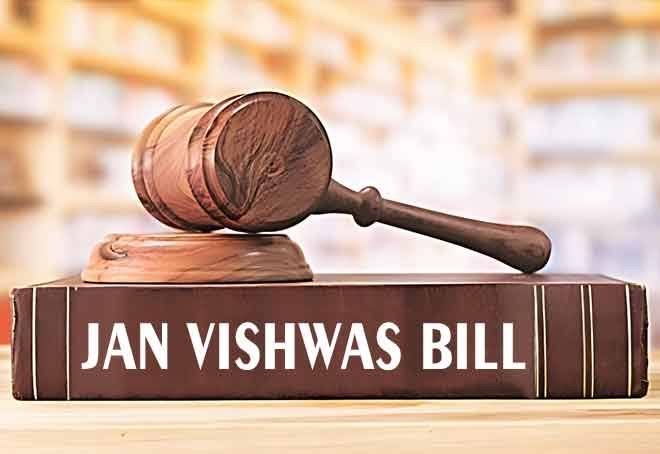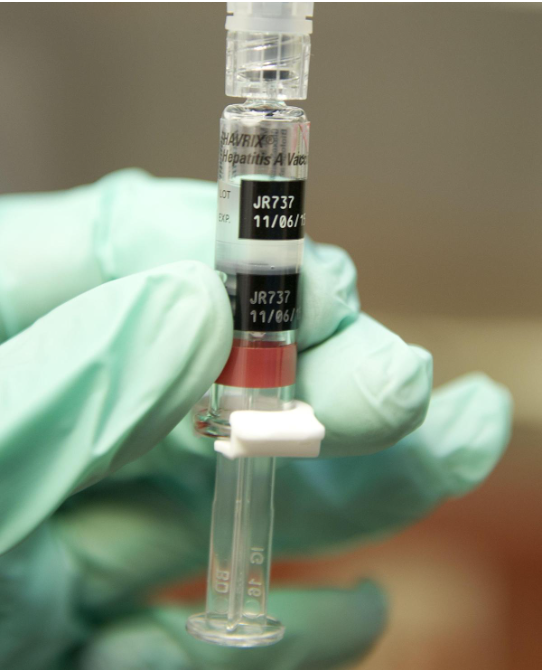Description

Disclaimer: Copyright infringement is not intended.
Context: The Jan Vishwas Bill, which was brought to the parliament with an aim to improve the ease of doing business, was passed in both Rajya Sabha and Lok Sabha.
What changes does the Jan Vishwas bill make to the drug law?
The Jan Vishwas Bill will make two changes to the Drugs and Cosmetics Act, of 1940.
The first amendment:
- It will do away with imprisonment under section 30 (2) of the current law for companies repeatedly using government analysis or test reports for promoting their products.
- At present, companies face up to two years imprisonment and a fine of not less than ten thousand rupees for a repeated violation.
- This will change to only a fine but not less than five lakh rupees.
The second amendment:
- It will change section 32B (1) of the existing law to allow “compounding” of offences under section 27 (d).
- What this essentially means is that companies violating the provisions of 27 (d) will continue to face imprisonment between one and two years and a fine not less than R20,000.
- Now there will be an alternative mechanism where the company could agree to pay the fine instead of going through a criminal proceeding in court.
|
Note: Compounding is a legal provision that allows one to pay a fine instead of undergoing criminal proceedings.
|
Reason for objection
- While the existing drug law already allows for compounding other offences, the reason many have raised an issue with including section 27 (d) is that it also includes drugs that are not of standard quality (NSQ), colloquially referred to as substandard drugs.
- Such medicines with low levels of active ingredients or those with bacterial endotoxins (bacterial particles that can lead to immune responses such as fever and even anaphylactic shock) are being prosecuted under section 27 (d).
- The provision can be used by companies to get away with manufacturing substandard products by paying a fine.
.jpg)
Government’s stand
- The provision for compounding will be available to manufacturers who face imprisonment for charges with minor aberrations or quality control measures.
- Compounding will prevent long litigation and reduce the burden of courts.
- For instance, In several cases under section 27(d) the drug inspectors painstakingly prepare a case, it stays in court for years, and then the manufacturer anyway has to just pay the fine. Or, sometimes companies with minor deficiencies they are willing to correct are stuck in litigation for years.
- The compounding will not be available to companies that are repeat offenders.
Good manufacturing practices and section 27 (d)
- The Schedule M of the Drug Act lists all the requirements such as space or processes for drug manufacturers.
- The changes that were made to this schedule in 2018 to improve drug manufacturing in the country are yet to be adopted by a majority of drug manufacturers.
- The bigger companies with a turnover of over 250 crores will need to implement these measures within six months and smaller companies within a year.
- Those who do not implement the measures within the stipulated time will also be prosecuted under section 27 (d).
About Not of Standard Quality (NSQ) drugs
- A drug being an NSQ drug means that it fails some of the requirements set for that particular product by the Indian Pharmacopoeia.
- This would include drugs that fail the dissolution test (measure the rate at which a tablet or capsule releases the active ingredient in the body) or those that do not contain the full dosage of medicine as mentioned on the medicine cover.
About Section 27 of the Drugs and Cosmetics Act
Section 27 of the existing Drugs and Cosmetics Act has provisions for punishments for different types of offences
a) adulterated or spurious drugs that lead to death or grievous injury carrying a sentence of up to life imprisonment,
b) adulterated medicines that do not fall under the previous category of medicine manufactured without a licence carrying a sentence of up to five years, and
c) spurious medicines other than the ones that fall under the first category carrying a sentence of up to seven years.
Section 27(d) covers any offence not covered under the a, b, and c categories.

Conclusion
- Allowing compounding is a good move and prevents companies from being stuck in litigation for years for minor offences. It has been a long-standing demand of the industry that minor offences be decriminalised to reduce harassment of business owners. However, all the stakeholders must be consulted and their views should be debated.
|
PRACTICE QUESTION
Q. Consider the following statements about Jan Vishwas Bill
- It adds a section under which there will be an alternative mechanism where the company could agree to pay the fine instead of going through a criminal proceeding in court.
- It will do away with imprisonment under section 30 (2) of the current law for companies repeatedly using government analysis or test reports for promoting their products.
- Section 27 (d) also includes drugs which are not of standard quality (NSQ).
Which of the above statements is/are correct?
- 1 and 2 only
- 1 and 3 only
- 2 and 3 only
- All are correct
Ans: D
|
https://indianexpress.com/article/explained/explained-health/jan-vishwas-bill-manufacturers-substandard-drugs-fine-8874413/











